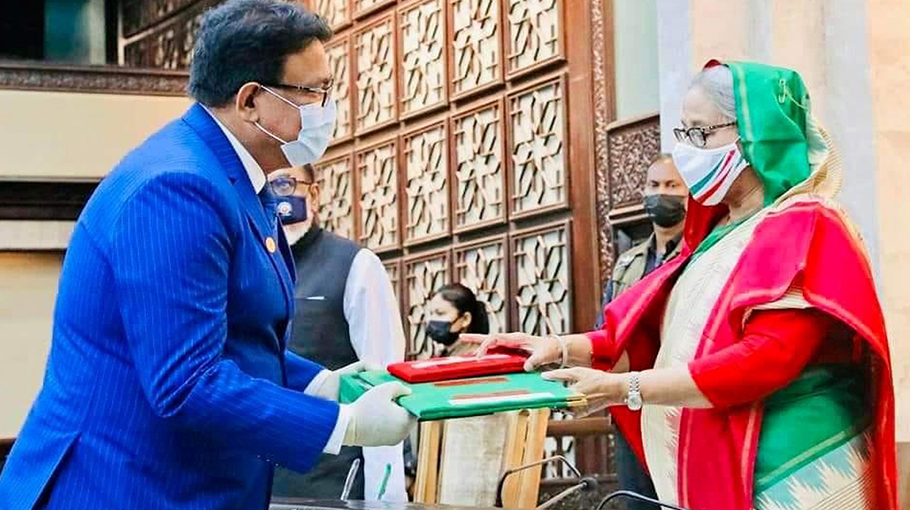Wheat and Maize Research Institute gets Swadhinata Padak


Bangladesh's traditional Bangladesh Wheat and Maize Research Institute (BWMRI) has been awarded Swadhinata Padak by the Government of Bangladesh this year on the occasion of the 50th anniversary of the great independence. The Bangladesh Wheat and Maize Research Institute won this state medal in the category of researching and training in quality seed innovation in alleviating hunger and poverty. Located in Nashipur, Dinajpur, this institution has made a unique contribution to the development of blast-resistant, zinc-rich, heat-tolerant, salt-tolerant, high-quality, nutritious, cash-grained grains of wheat and maize in alleviating hunger and poverty of the people of this country. Internationally renowned agricultural scientists of Bangladesh Wheat and Maize Research Institute (BWMRI) have developed high yielding wheat and maize seeds at low cost and low irrigation in a short period of time to suit the needs of the people of this country. It has created records in average yield and
production.
Father of the Nation Bangabandhu Sheikh Mujibur Rahman started wheat and maize cultivation in this country for the first time in the post-independence period as part of a programme to expand wheat and maize cultivation and strengthen research technology training. Later, Prime Minister Sheikh Hasina included the Wheat Research Center under the Bridging Project in 1996 with the aim of increasing wheat cultivation. In view of the demands of the people of Dinajpur, on 26 October 2016, the Prime Minister transformed the Bangladesh Wheat Research Center into a Wheat and Maize Research Institute.
A limited number of internationally renowned agronomists work on research, innovation, training and transfer of improved varieties of seeds with the assist of breeders, staff and workers. For its unique contribution during Covid-19 period and beyond, it was ranked first among 18 institutions in the Ministry of Agriculture in the agreement signed by the Government of Bangladesh for the implementation of the 'Shuddhacharath and Annual Performance Program (APA)'.
Director General of Bangladesh Wheat and Maize Research Institute, Dr Ghulam Farooq said that in the near future, many improved seed lines are awaiting release of new varieties for cultivation in the river basins of heat resistant saline resistant, hilly, coastal and char areas of the country. He said Bangladesh Wheat and Maize Research Institute is an institute engaged in wheat and maize development research. The company has developed a total of 36 varieties of salted non-violent, progress line varieties such as 1219, 1147, barley-wheat-25, blast disease resistant varieties such as WMRI-3, barley wheat-33 (including zinc rich). In addition to this there are two tritical varieties which have been released. Which is extremely suitable for cow-feed.
The state-of-the-art research institute has invented 100% wheat varieties planted in Bangladesh. Maize scientists at the institute have also been able to develop several varieties of maize that are already tolerant of changing climates. So far, 20 hybrid maize and 9 freely pollinated varieties have been released by maize scientists, including one khai maize and one sweet maize variety.
In addition to research, the institute also conducts training and technology-based exhibition activities in various fields. Since its inception, 5 directors general have performed the duties of director general of research, one of them is Dr. Abul Kalam Azad, Dr. Naresh Chandra Devasharma, Dr. M Esrail Hossain, Dr. M Amiruzzaman and Dr. Golam Farooq.




